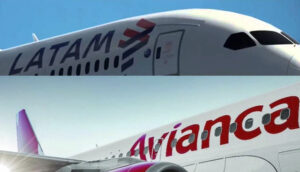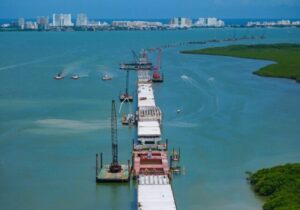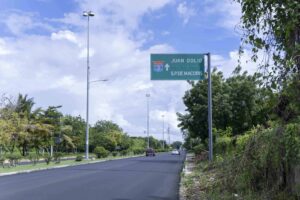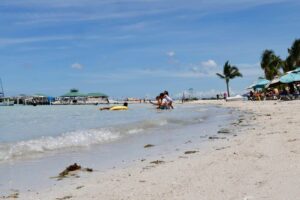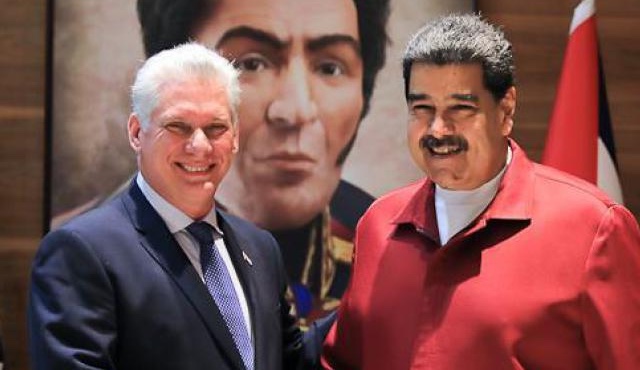

Cuba is monitoring the elections in Venezuela with a focus on oil and cooperation agreements, putting the tourism industry on alert given the close relations with the country governed by Nicolás Maduro, which supplies the island with one-tenth of all the oil it exported in May.
Fuel shipments to Cuba from Venezuela tripled compared to the previous month, accounting for 10% of total crude and fuel exports, according to internal documents from Venezuelan state-owned oil company PDVSA.
The situation in the country with street riots has led journalist and writer Telma Luzzani to suggest that “what is being facilitated is an insurrection or a civil war in Venezuela,” she told 750 (Venezuela: “civil war or insurrection” is already alerting Tourism).
On July 18, Maduro warned that “if the right deceived the population in Venezuela, there could be a bloodbath and a civil war because this people will not allow their homeland or social rights to be taken away.”
Following the election results in Venezuela, where Nicolás Maduro proclaimed himself president again, several countries expressed their position, which caused the Venezuelan government to issue a statement temporarily suspending commercial Flights with the Dominican Republic and Panama, with hundreds of operations affected, especially Copa.
At least 300 Flights have been cancelled by six airlines affected by the suspension measure from the Dominican Republic, adopted by the Venezuelan government, with a weekly average of 2,700 passengers (Maduro suspends Flights to Panama and the Dominican Republic from Venezuela).
The airlines affected by the suspension include Laser, which flew from Santo Domingo to Venezuela on Thursdays and Sundays; Sky High, with daily operations; Avior, which covered Mondays, Wednesdays, Fridays and Sundays; Turpial, which operated on Mondays; Rutaca, with Flights on Sundays and Mondays; and Venezolana, which offered service on Thursdays and Sundays.
Meanwhile, four unscheduled Flights took off from Havana to Caracas in the last few hours, such as the Conviasa A340 executive plane, which President Miguel Díaz-Canel normally flies on, or a second one, rented from Turkish Airlines, as well as a third aircraft, from Cubana de Aviación, which departed from Havana.
Cuba, along with Russia and a few other allies of Chavismo, have shown support for Maduro, although the United States, along with some seven Latin American nations, including leftist governments such as Chile, Colombia and Brazil, as well as the OAS, the European Union, the IDEA group, the Socialist International and other authoritative voices, demand that the voting records be published.
Before issuing the suspension of Flights, the Venezuelan government had already broken diplomatic relations with several countries, demanding that their representatives leave Venezuela, including the Dominican Republic, Argentina, Chile, Costa Rica, Peru, Panama and Uruguay, indicating that the withdrawal should be “immediately.” In addition to “withdrawing all diplomatic personnel from the missions.”
Thus, places like Santo Domingo, Punta Cana, Buenos Aires, Santiago, Lima or Montevideo are being affected by doubts about the electoral recount in Caracas, as revealed REPORTUR.co (Maduro suspends Flights to Panama and the Dominican Republic from Venezuela).
Angry Venezuelans tore down the Cuban flag from a public square and destroyed a statue of Hugo Chavez.
Cuban leader Miguel Díaz-Canel Bermúdez said that Nicolás Maduro’s opponents in Venezuela are “guarimberos on duty” and enemies of Our America.
“Cuba Denounces: Those who cried fraud before the elections; those who disqualify Nicolás Maduro’s victory without arguments; the coup plotters and the guarimberos of the moment, are on the side of those who hate and destroy, the enemies of Venezuela and Our America,” said Díaz-Canel.
According to German political scientist Gunter Maihold, “since Cuba is so dependent on Venezuela, it can be assumed that a political transition in this country would pose an existential threat” for the island.
In exchange for crude oil, Venezuela receives doctors, teachers and professionals from different areas who serve the social missions of the Maduro government. But it also has members of intelligence and military personnel who advise the security services.
The opposition and much of the international community have yet to recognise the results of the elections amid accusations of fraud, and while María Corina Machado’s party has more than 70% of the votes, the streets of the country are turning into chaos.
Several people have reportedly died during the protests due to the strong military repression, which has already left hundreds of young people injured and dozens arrested in different municipalities of the country, while there are fears that María Corina Machado or Edmundo González may be charged with crimes that could also lead to their arrest.
The lukewarm support of Maduro’s ideological allies, such as the governments of Brazil and Colombia, is encouraging society to protest, as these two countries have joined the UN, the United States, the European Union and Spain in demanding the records of the electoral centres from the Venezuelan government.
This conflict threatens Maduro’s continuity in the event that, in the absence of international support, there are desertions in his security forces under the scenario of a new power that guarantees order, and that the regional balance is thereby altered.
The most clearly affected by the changes would be Cuba, whose tourism industry is closely following the development of its ally, at a time when power outages and fuel shortages have increased, and which has been experiencing a tourism recovery after the pandemic that is much slower than that of rivals such as Cancún or Punta Cana.
